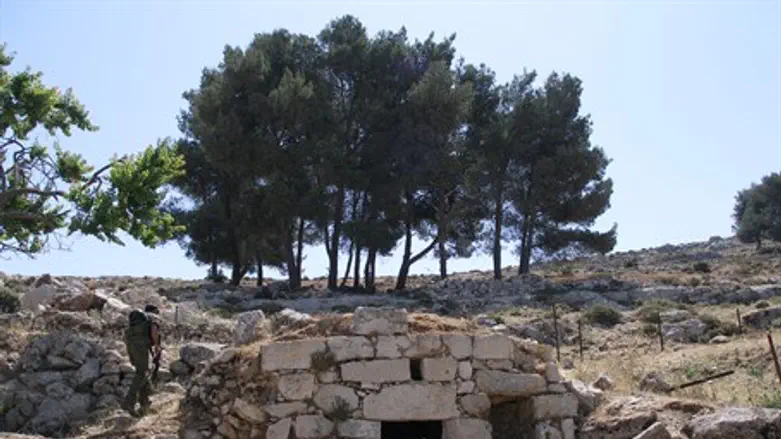
Palestinians last week badly damaged an ancient cave in the Gush Etzion area. The cave, which was dated from the days of Bar Kochva – some 1,900 years ago – was effectively destroyed, officials of the Gush Etzion Field School said.
Speaking to Arutz Sheva, Yaron Rosenthal, head of the Field School, said that in recent months, the IDF has stopped providing protection for sites like the cave – providing opportunities for Arabs who seek to damage the age-old connection between Jews and the Land of Israel to act.
The cave, Rosenthal said, was one of the largest of the “secret caves” used by Jewish revolutionaries fighting Roman terror during the Bar Kochba rebellion, between 132 and 136 CE. The cave, which is the entrance to a network of subterranean passages that run for many kilometers under the Judean Hills, may have held hundreds of Jewish rebels and large amounts of supplies. A large part of the network is located under the Arab village of Arabiya, which is located on the ruins of a large Jewish town from the Mishnaic period, over 2,000 years ago.
Arab vandals, sometime during or before the Sukkot holiday, used a tractor to destroy the entrance to the cave. It was only by chance that a member of the Field School who was very familiar with the cave passed by and reported on what happened. Rosenthal said that the tractor destroyed priceless archaeological finds.
But the Bar Kochba cave is just the tip of the iceberg, he said. “This is going on all day and all night throughout Judea and Samaria. Whole archaeological sites are being destroyed.” Most of it is not being done for political purposes, he said, but for robbery – with antiques thieves seeking to hide their crimes after they steal artifacts from sites – or for agricultural purposes, by farmers who want to flatten land in order to grow vegetables.
“We are less interested in the artifacts like ancient coins, and more interested in the structures themselves, which tell the story of history,” he said.
Rosenthal also blamed the ongoing destruction of archaeological sites to a lack of enforcement; between Hevron and Jerusalem, he said, there was exactly one government inspector who was supposed to check on the condition of hundreds of sites – many of them in Arab villages where Israeli inspectors are definitely unwelcome.
Rosenthal believes that the government will act only if Israelis demand it.
“Only a strong presence in the field and a large number of guides who come to these sites will the damage be prevented,” he said. “Only with a massive Jewish presence will the reality change. The most important thing we can do is to travel in this area and visit these important sites, and get to know our history. When Israelis come here, these things will no longer happen.”